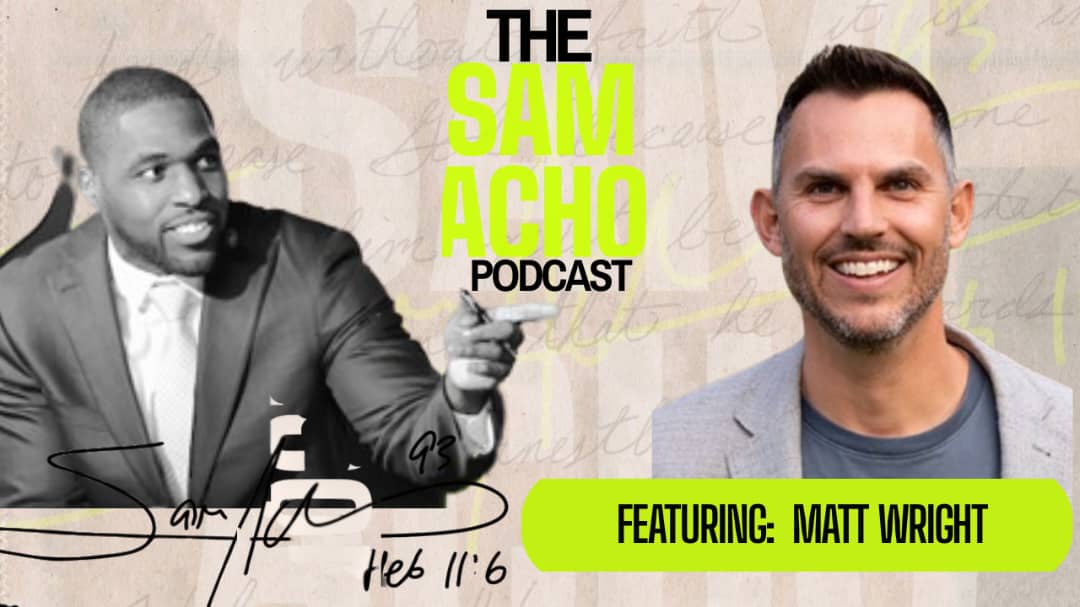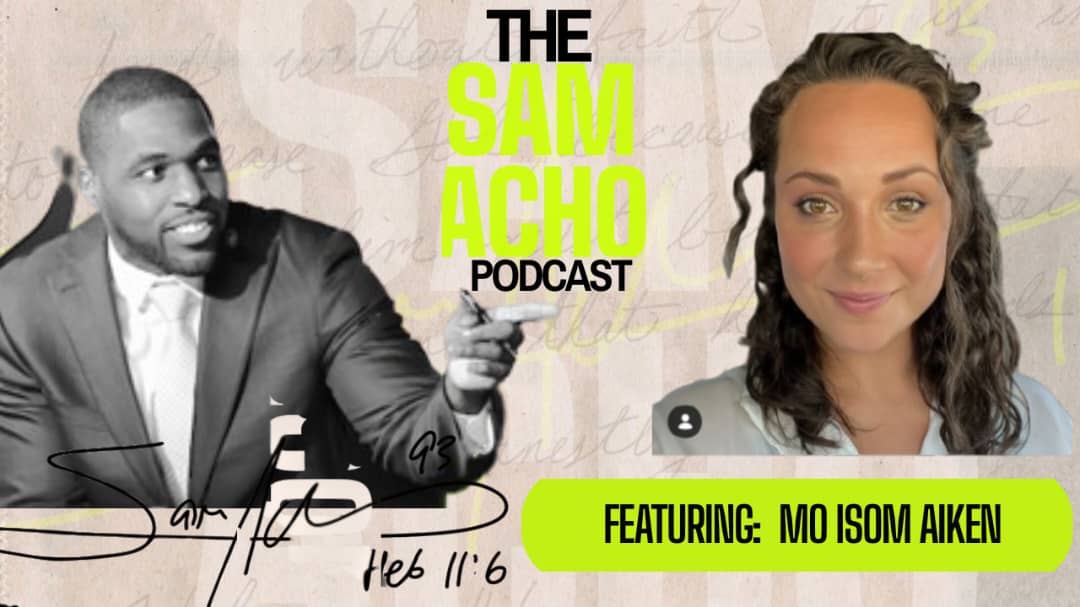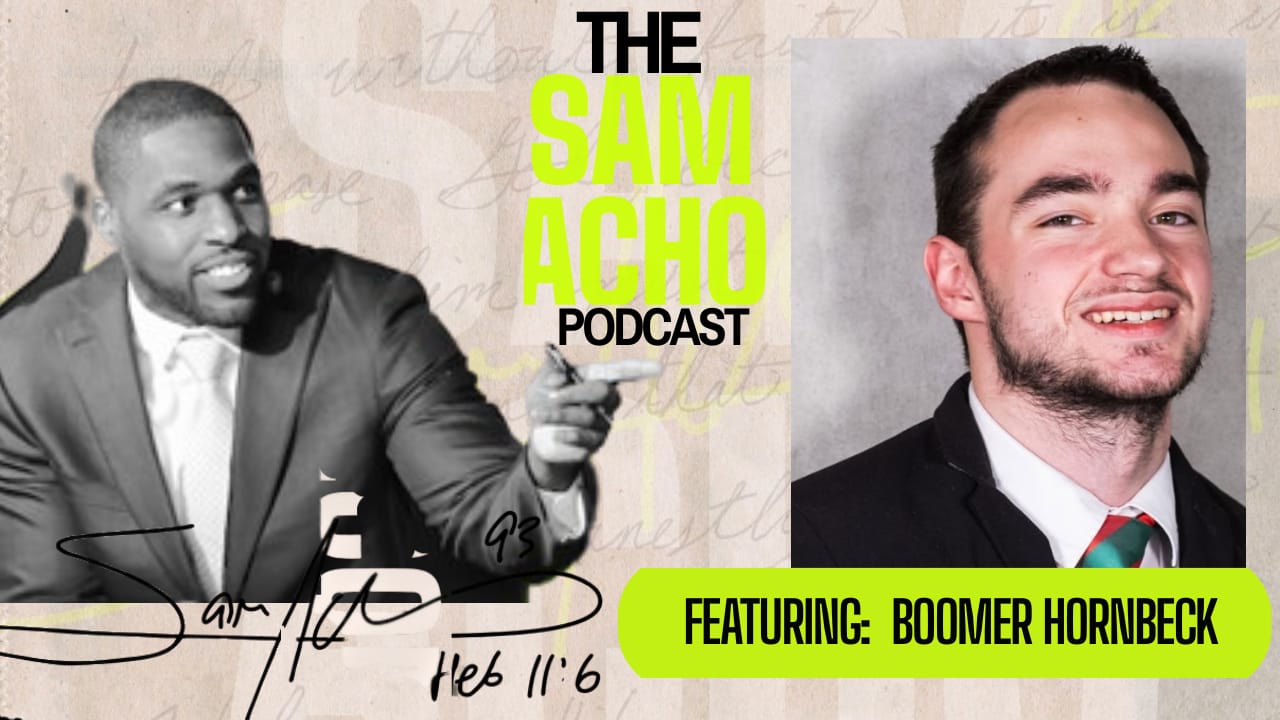Vincent Rey on Football, Faith, and Finding Your Purpose Beyond the NFL
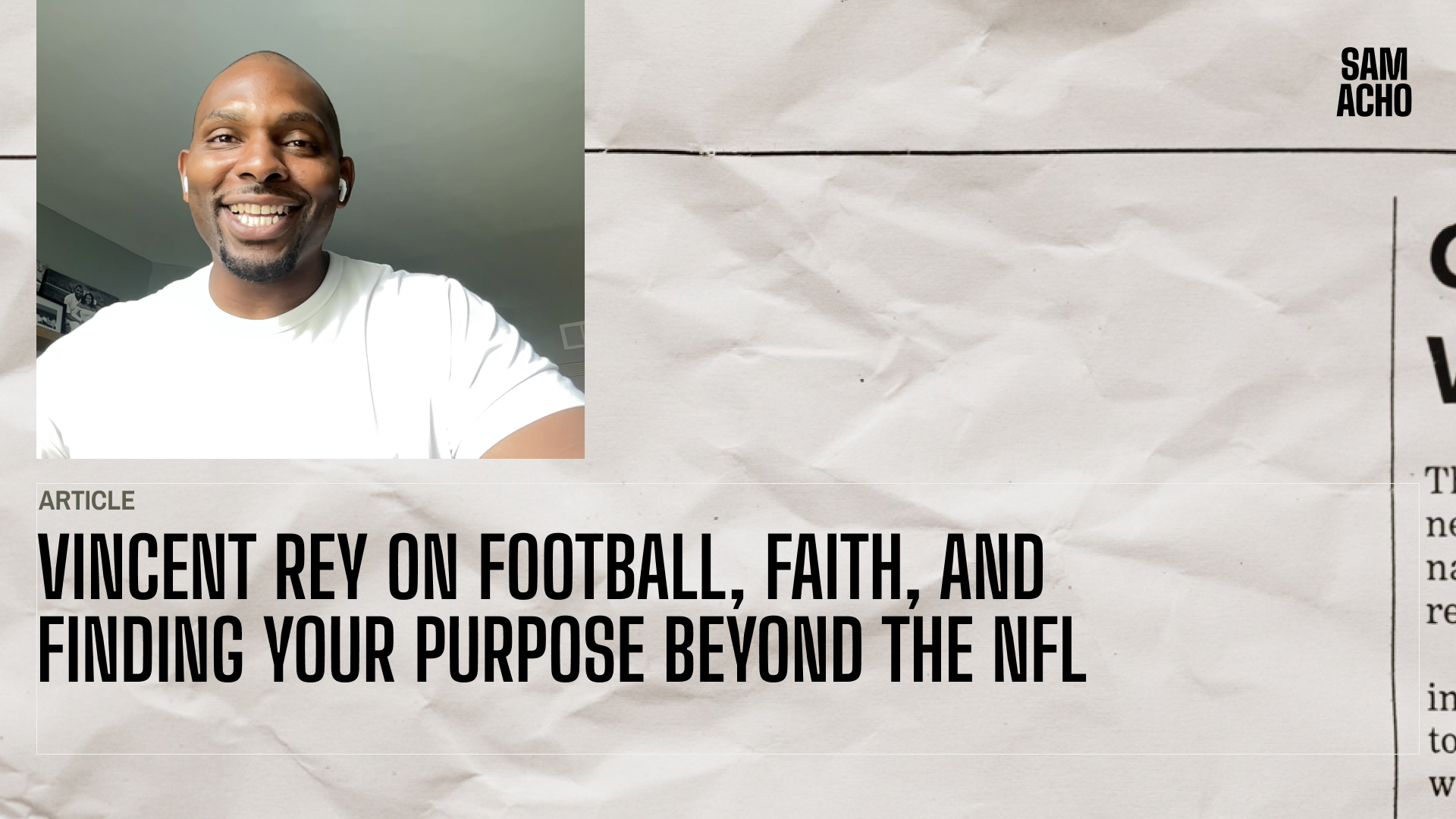
Vincent’s NFL journey and what it means to last
Vincent Rey came into the NFL as an undrafted free agent, stepping into an environment where every roster spot was up for grabs each day. He describes those early years through a relentless focus on consistency and discipline. “You don’t come on time to meetings, you’re early for meetings because when you get there early, the coach is already in there. So he’ll go through what he’s going to go through. So you get a chance to hear it twice.” His words reveal the daily grind—it is about showing up, learning, listening, and being present before others even arrive.
Athleticism gave Vincent opportunity—he mentions his 6-foot height, 82-inch wingspan (a plus-10), and running the “four-five” forty—but he downplays these advantages. His message centers on reliability. “They’re not maybe looking for the most talented. They’re looking for someone who’s going to consistently bring what they have.” Vincent’s nine-year stretch making the Bengals’ 53-man roster reflects this philosophy. He started out on special teams, carved out a role on defense, and slowly built trust with coaches by showing up and producing whenever called upon.
A key influence on Vincent’s process was offseason training at Ignition, where he trained alongside athletes like Luke Kuechly. Even after Kuechly won NFL Defensive Player of the Year, Vincent recalls, “If we ran 100 half-gassers, he won a hundred…he refused to lose.” Competing with high-character, high-intensity athletes pushed Vincent to elevate his own habits. “The athleticism may get you to the door, but the desire will keep you there.” Consistency, reliability, and attention to detail made the difference for Vincent in a profession measured by both statistics and unseen habits.
The adversity he faced went beyond the anxieties of making the team. In college, he endured hard seasons—his team won just one game in his first two years at Duke—and a mentor once called out his “carnal Christianity,” challenging Vincent to distinguish between nominal faith and living out values. That confrontation forced growth, leading him to own both his strengths and his blind spots.
Pain also shaped his NFL journey. Vincent’s ninth year was marred by an ankle injury, which meant every week—rehab, playing through pain, waking up not wanting to face the day. He was honest about the discouragement and doubt: “Why did that happen? I don’t know. And it taught me that it’s okay not to know.” This acceptance, rooted in trust, saw him through what turned out to be his final season suiting up.
What happens when the uniform comes off—identity and faith after football
Football tells you your value depends on performance. Vincent describes it bluntly: “Football culture is telling you that you are what you produce…you play well, other teammates treat you well, coaches treat you well…when you don’t perform well, you’re not treated as well.” He compares retired athletes to unused factories in Ohio’s “rust belt”—left behind, seemingly without value. Shame and disorientation can follow, especially when a player does not get to exit “on his terms.”
Change began with truth delivered in a church small group: “What you do matters, but who you are matters more.” Vincent calls this “what set me free.” He admits that even though he “believed in Jesus for most of my life,” he felt trapped by other people’s perceptions and his own disappointment when football ended differently than planned.
Vincent’s identity shift is clear when he says, “I became secure in knowing that what my Father thinks of me really matters the most. And I know he thinks highly of me because he paid a high price for me in Christ.” No longer striving for approval from coaches, he started looking to God in the “between plays” moments—“Instead of looking to the sideline, I look up and I would just pray… ‘Hey God, what did you think about that play?’” That mindset brought a peace that wasn’t tied to external validation.
Sam Acho’s experience echoes Vincent’s. Sam admits performance was his own “idol”—he craved approval, not just during games but also in small, everyday competitions. A sign in his NFL meeting room—“You are what you put on tape”—captures the underlying anxiety. The cure, Sam and Vincent agree, was shifting to an “audience of one,” where God’s opinion anchored their worth.
This transformation affected how Vincent approached life after football. When the Bengals’ previous chaplain moved on, Vincent and his wife Noelle were recruited to lead the players’ and families’ spiritual support. Instead of preaching at people, Vincent emphasizes “ministry of presence”—being in the room, available, approachable, and in step with what God is already doing. Weekly routines as chaplain span from Bible studies with players and coaches to gatherings for couples and family support, often hosted at their home where their daughters pitch in with babysitting.
Noelle meets with spouses for coffee, zoo outings, and organizes baby showers—last year celebrating five pregnancies among the team’s families. The Reys’ shared journey highlights the “family affair” aspect of ministry. Vincent’s favorite work in this role? Premarital counseling: “The Bible says that God’s people are the bride of Christ…a picture of God’s love for his bride.” The connection between faith and marriage is personal, shaped by his own commitment to pursuing faithfulness and forgiveness.
Lessons in stewardship, transition, and owning your number
The gap between a successful NFL career and thriving after is bigger than most think. Vincent is quick to puncture the stereotype that former athletes always “blow their money”—he believes the bigger problem is that players “try to be experts in something else they never really put the time in to do.”
His most practical advice to young athletes is “What’s your number?”—know, to the dollar, what you actually need to live. Map it out monthly and annually, so you have a target not just for survival but for genuine peace of mind. Vincent admits that even he resisted learning the financial side: “I was depending on other people to handle my finances…that doesn’t mean I don’t have other people help me, but I need to be knowledgeable also.” He stresses asking hard questions about fees, understanding how advisors are paid, and refusing to “feel dumb” for wanting to know details.
Ownership is key—“I can learn. I can grow…but I can also hold someone accountable.” Vincent explains that stewardship as an athlete translates into stewardship as a retiree, businessperson, or community leader. Many former players, he observes, rush to “give back” but sometimes make hasty decisions, offering jobs or investments to friends and family out of heartfelt sincerity but lacking due diligence. Vincent calls this “foolish”—not because the intent is bad, but because wisdom takes homework, vetting, and sometimes saying no.
Learning the language—of finance, investments, business—is a process. Vincent shares attending venture capital conferences, feeling out of his depth. But he realized, “they’re not smarter than you, they’re just speaking a different language. Learn the language.” He encourages athletes and anyone else in big life transitions to be patient in the learning process, to ask advisors to explain things clearly, and, when explanations do not come, to seek out educators who can walk with you.
The power of presence—iron sharpens iron
For Vincent it's all about being present. Presence is the action of showing up, connecting, and building trust. Cliff Marshall reflects that Vincent’s practice of “treating every day like it’s a job interview” was the way he built impact, both as a player and as a chaplain. For Vincent, Proverbs 27:17 is lived out in real time: “As iron sharpens iron, so does one man sharpen another.” Sam admits he was sharpened by Vincent—physically, spiritually, and mentally—every time they trained, studied, or competed together.
Cliff also points out how Vincent “stood out” by his conduct off the field, choosing to honor his engagement to Noelle by getting separate hotel rooms before marriage—living out Romans 12:2: “Don’t fit in. Stand out.”
Vincent’s largest contribution is often unspoken: modeling what it means to pursue excellence, to ask tough questions about identity and stewardship, and to remain present even when the applause fades. His journey—from two-hour New York commutes, through undrafted NFL entry, to chaplaincy in Cincinnati—offers a realistic but hopeful challenge: be consistent, be present, serve others, and remember what matters most. The path from football to faith to stewardship is winding, but for Vincent Rey, it is this mixture of daily presence, learned humility, and steady pursuit of God that shapes a soul strong for more than sports.
Listen, Learn, explore
Join Sam’s Journey Today.
Stay up to date with what sam acho is getting up to, his thoughts, new projects, and words of wisdom.


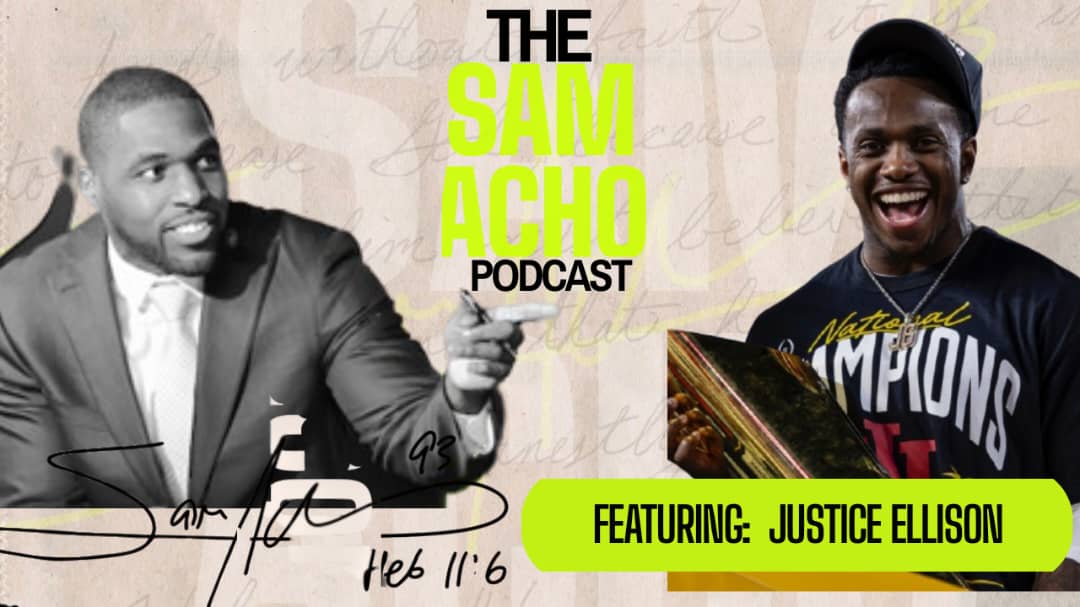
.png)
